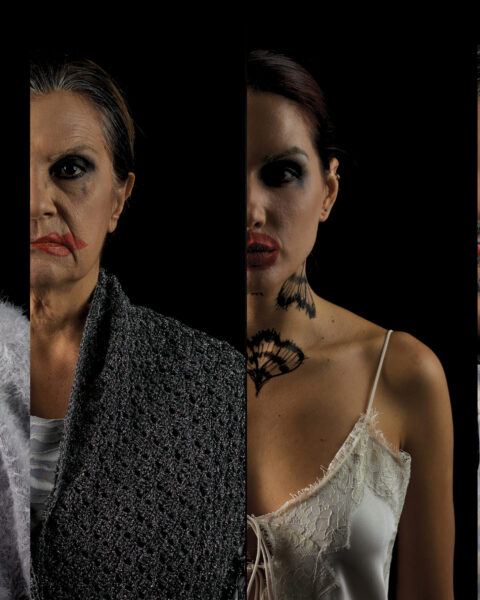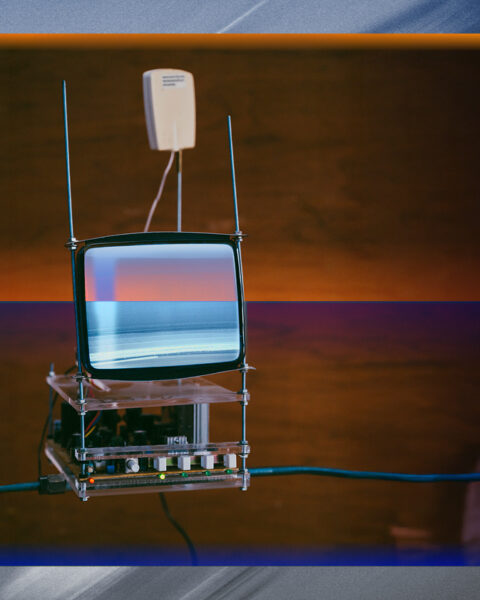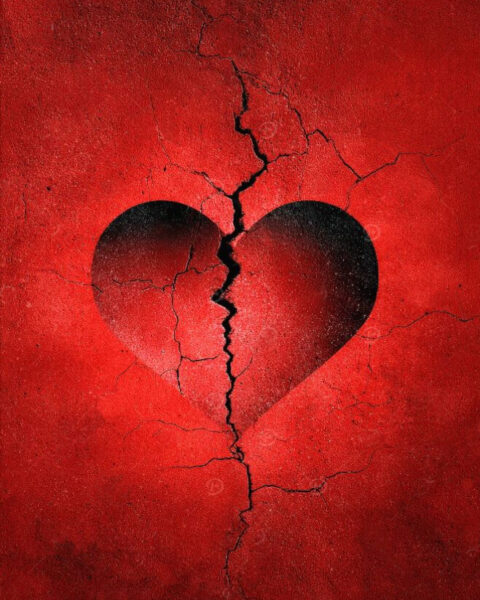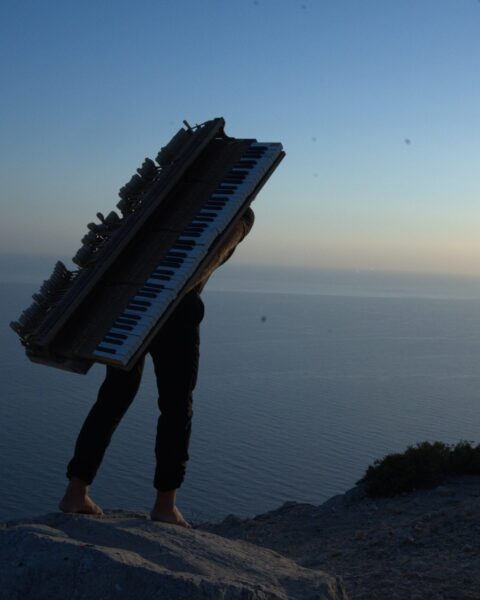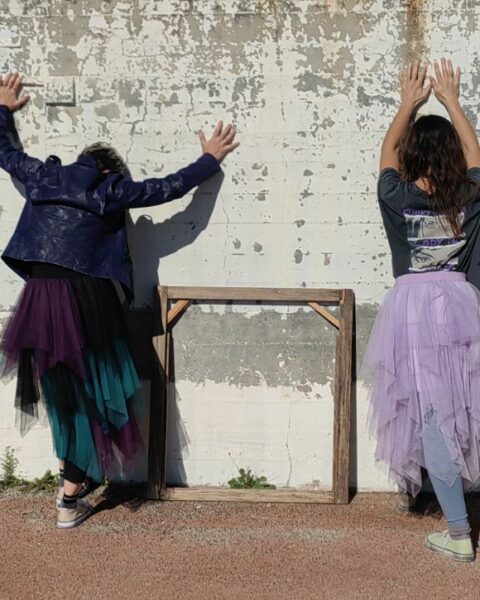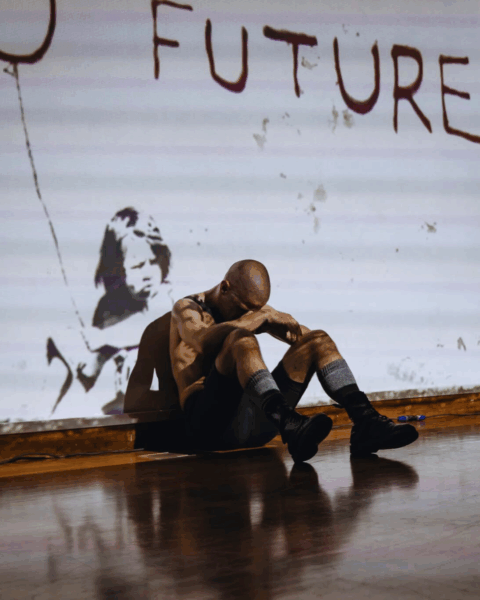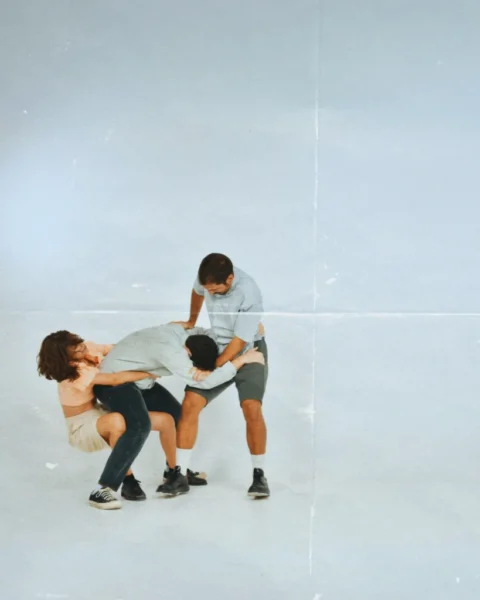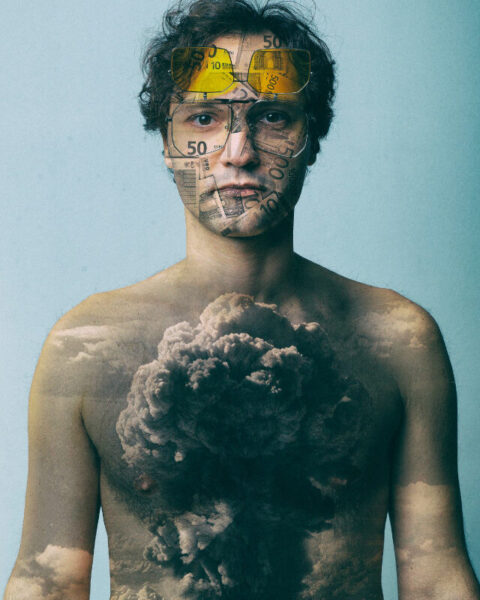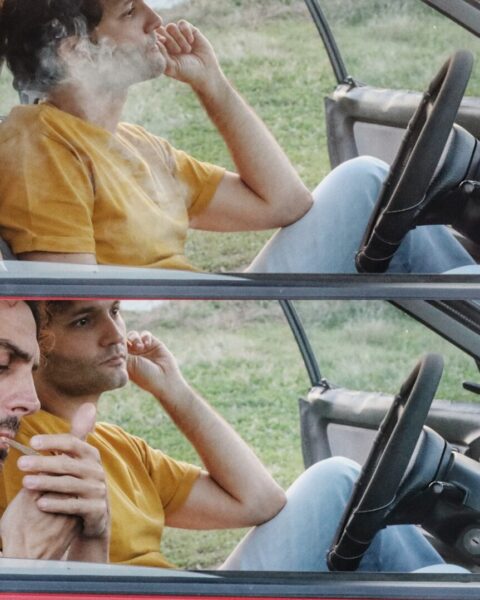“The Iranian Conference”
by Ivan Vyrypaev
by Little Things Orchestra
Directed by Christos Theodoridis
Second year at PLYFA
Following its sweeping run last season and the presentation in Thessaloniki as part of the 60th Dimitria Festival, The Iranian Conference by Ivan Vyrypaev, produced by the Little Things Orchestra and directed by Christos Theodoridis, returns to PLYFA for a new cycle of 26 performances from November 3, 2025 through January 13, 2026.
Written in 2018 and set in Denmark, the country with one of the happiest populations in the world, Vyrypaev’s play transports us to a conference lecture hall at the University of Copenhagen, where nine members of the local intellectual elite convene to discuss the complex Iranian issue and the clash between East and West. Very soon, however, “The Iranian Conference” transforms into a “Conference about Us*,” a confrontation of different worldviews surrounding the cosmos, human existence, and the eternal question: what is the meaning of life?
“And what shall I do, then?”
“What we all do — cry and love.”
Through a feverish discourse that moves from philosophy to science and from conservative to progressive thought, Vyrypaev’s play connects the “political” with the “personal,” seeking the deeper causes that have led us to today. In a fragile era when our world is shaken by war and genocide happening near us, and the rift of division deepens, the questions of the play acquire terrifying urgency: how can we truly communicate, how can we love, how can we continue to live?
“Honestly, I could barely make sense of anything. Why do I live?”
What does it mean to live? Is there an answer to this timeless question? The Little Things Orchestra invites the audience into a performance-conference, through which the viewers will come into contact with nine speakers who, trying to explain the world around them, confront the world within themselves.
CRITIQUES / PRESS ON THE PRODUCTION
“Christos Theodoridis’s direction and the ten exquisite performances show how a seemingly ‘static’ play can be so electrifying.” — Tonia Karaoglou, Athinorama
“The performance manages to captivate through its simplicity, proving that the power of theatre lies not in excess but in the meaningful communication of ideas and emotions.” — Georgia Oikonomou, News24/7
“Considering the very contemporary repertoire, it would not be an exaggeration to point out that this is the most incisive theatrical text at least of the ongoing season — deeply political, contemplative and existential all at once, with a perceptive philosophical foundation and expansive outlook, which dissects current reality, today’s life, ourselves, our planet.” — Grigoris Bekos, To Vima
“The Little Things Orchestra, under the guidance of director Christos Theodoridis and a tightly knit ensemble of young, gifted actors, achieves a scenic feat with minimal means and deep soul.” — Maria Katsounaki, Kathimerini
“I cannot recall a production by this group that failed to surprise me. I believe the secret of the ‘Orchestra’ lies in the fact that each of its performances is founded on the sincere involvement of its members, equal participation in the dramaturgy (here by Isabella Konstantinidou and Christos Theodoridis), and the mature yet selfless development of each actor in their role-position.” — Grigoris Ioannidis, Efimerida ton Syntakton
“A fully won intellectual-performance gamble. A show that shakes you and makes you ponder your own position and perspective on these issues, lingering with you long afterward.” — Giorgos Mitropoulos, Euronews
“An inspired handling of another example of Vyrypaev’s distinctive political writing by Christos Theodoridis, brought to life by the rebelliously expressive ensemble of actors.” — Stella Harami, Monopoli
“The performance THE IRANIAN CONFERENCE is exemplary with finely tuned direction, finely tuned actors, finely tuned text. Nothing superfluous in the scenography (Tina Tzoka), lighting (Tasos Palaioroutas), dramaturgical processing (Isabella Konstantinidou). It shook me as a human being and as a spectator…” — Dina Karra, Only Theater
“[…] in its final minutes, the show offers its own answer: the delegates (including the moderator), shaken by the poetic outbreak of the faithful poetess, forget their roles, disputes, differences, and unite in a coordinated dance wave sweeping the hall rhythmically, dragging us into that Country where bodies find freedom beyond speeches and ideologies, in the pure pleasure of encounter and contact, a collective pulse that rouses us.” — Louiza Arkoumanea, LiFO
“Christos Theodoridis has theatrically and astutely transformed a difficult text — to make it attractive — by penetrating its core, primarily through his actors, because upon them rests the conveyance of all that Vyrypaev addresses. Xenia Themeli’s choreography and the way it is integrated into the duration of the performance becomes the breath, the liberation, the ‘freedom from ourselves’.”
“A contemporary, substantive, profound, contemplative work — a performance that elevates it with simplicity, immediacy, and passion — in the best way possible.” — Olga Sella, O Anagnostis
“In yet another inventive direction by Christos Theodoridis, and with captivating performances, Vyrypaev’s play succeeds, finding its theatrical essence and opening an urgent dialogue, beginning in the political and reaching — as it must — the personal.” — Iro Koundadi, In2Life
“At the end of the outstanding performance, all the delegates will rise one by one to dance the feverish choreography of Xenia Themeli, transforming questions into hallucinogenic matter of a Bacchic feast, leaving the audience applauding with an aftertaste of high intellectual exhilaration and admiration.” — Nikos Xenios, Bookpress
“Both Vyrypaev’s excellent play and Christos Theodoridis’s stunning staging begin from the mirrored version of a scientific symposium with unpredictable consequences and an unexpected climax. The reader/listener/viewer is kept in constant alertness, identifies, agrees, disagrees, gets angry, searches desperately for answers.” — Nektarios-Georgios Konstantinidis, I Epohi
“The Iranian Conference, with the deeply focused directorial gaze of Christos Theodoridis and his imagination and sensitivity, becomes a collectible show, a gem of a performance.” — Lena Savva, Theatro.gr
The performance was realized with the financial support of the Ministry of Culture.
Performances: November 3, 4, 6, 7, 8, 9, 2025 (Monday through Saturday at 20:30 & Sunday at 17:00) and from November 10, 2025 through January 13, 2026, every Monday and Tuesday at 20:30
Duration: 145′ (with an intermission)

